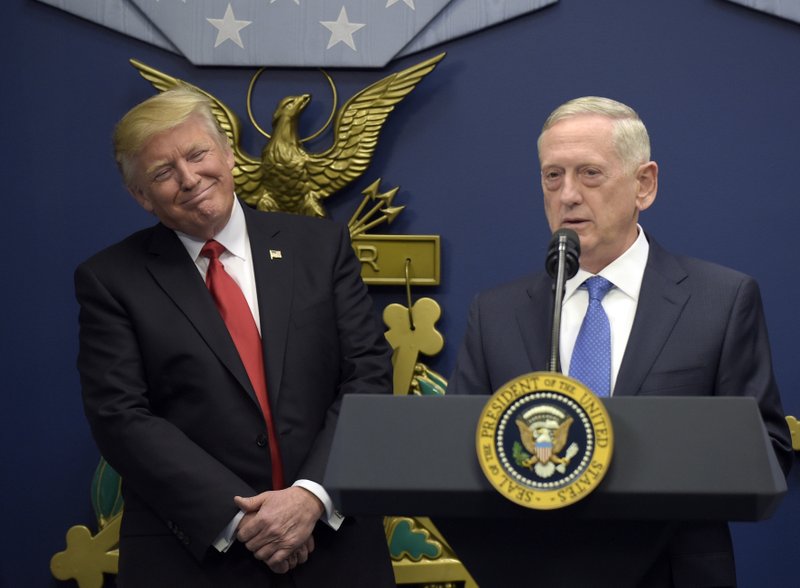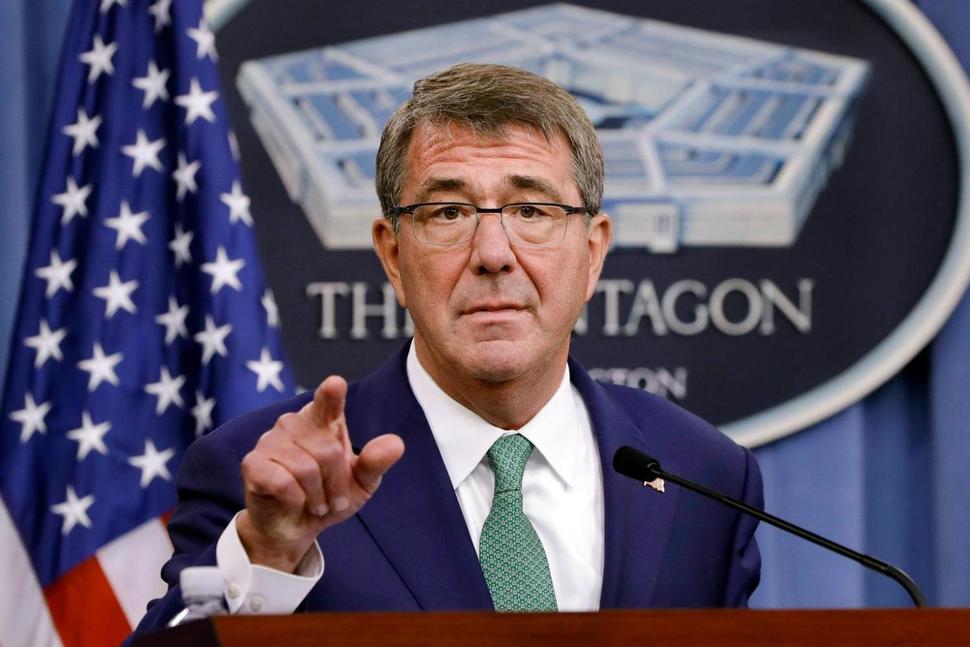Doug Jones to serve on influential Senate Armed Services Committee

Alabama Senator Doug Jones will be serving on the influential Senate Armed Services Committee (SASC) when the 116th Congress convenes in January. SASC is empowered with legislative oversight of the nation’s military, including the Department of Defense, military research and development, nuclear energy (as pertaining to national security), benefits for members of the military, the Selective Service System and other matters related to defense policy. “Alabama and its citizens have long played a significant role in our national defense, from building or maintaining ships and other vehicles to leading cutting-edge research and development to volunteering to serve in our armed forces,” said Jones. “It is vital that we have a voice on the Senate Armed Services Committee, a role that I am honored to be able to fill in the next Congress. I am committed to serving as Alabama’s advocate for a strong national defense, which also means a strong and prosperous economy in our state. I look forward to working with Chairman Inhofe and Ranking Member Reed to advocate for our service members and their families, and for a robust national defense posture that protects our interests at home and abroad.” The committee is key for Alabama, which is home to five military installations across the state that employ 8,500 active duty service members and more than 23,000 civilians. More than 375,000 veterans, including 65,000 retirees, live in Alabama. In 2017, the Department of Defense spent $7.7 billion on contracts in Alabama. Alabama does not currently have any representation on the Senate committee. “Senator Jones is a tremendous advocate for Alabama and a true champion for our service members and their families,”said Senator Jack Reed (D-R.I.), Ranking Member of the Senate Armed Services Committee. “I am pleased to welcome him to the committee and know he’ll continue working on a bipartisan basis to help keep America strong militarily and economically.” Jones’ other committee assignments In the new Congress, Jones will remain on the Senate Committee on Health, Education, Labor and Pensions (HELP) Committee where he will continue to advocate for improved access to health care and quality educational opportunities for all Alabamians. He will also continue to serve on the Senate Committee on Banking, Housing, and Urban Affairs and the Senate Special Committee on Aging. With his new placement on SASC, he will no longer serve on the Senate Committee on Homeland Security and Governmental Affairs.
Luther Strange tours Anniston’s BAE Systems Forge Facility

U.S. Sen. Luther Strange made a stop in Anniston last week to tour the BAE Systems Forge Facility to learn more about the operation and how it contributes to national security, as well as to the local economy and job market. “Almost everywhere you go in Alabama, you can find Alabamians working hard to keep our nation secure, either by serving in our military, or helping to provide the resources our armed forces need to do their job,” said Strange, a member of the Senate Armed Services Committee. “The BAE Systems Forge Facility is impressive to say the least, as it their dedication to their employees and local community.” BAE Systems employs over 260 people across three locations in Anniston and is the U.S. industrial base for combat systems track, producing the majority of the forged track components for the U.S. inventory of tracked vehicles. “We were excited to host Senator Strange at the BAE Systems Forge Facility and look forward to working with him in support for the nation and our employees in Anniston,” said Max Dodd, BAE Systems Operations Manager. “During the visit we were able to show the Senator how his position as a Member of the Senate Armed Services Committee positively impacts Anniston combat vehicle programs, such as the Armored Multi-Purpose Vehicle.” The Anniston facility also manufactures torsion bars and other suspension components for combat vehicles and for the mining and transportation industry. It has designed and/or developed every major track systems fielded by the U.S. Army in the past 35 years and over 16 million track shoes manufactured at the location.
Donald Trump’s proposed big military budget no sure thing

Republicans control Congress so President Donald Trump‘s pledge to boost the Pentagon budget by tens of billions of dollars should be a sure bet. It’s not. Trump faces skeptical Democrats whose support he’ll need and resistance from fiscal conservatives opposed to repealing a 2011 law that set firm limits on military and domestic spending. Unless the president figures out a way to mollify the disparate camps, he’ll have a tough time delivering on a signature campaign promise to rescue the armed forces from a festering financial crisis. Senior U.S. commanders have flatly warned that the spending caps set by the Budget Control Act are squeezing the armed forces so hard that the number of ready-to-fight units is dwindling. That means beating powers such as Russia or China is tougher than it used to be as aging equipment stacks up, waiting to be repaired, and troops don’t get enough training. Gen. Daniel Allyn, the Army’s vice chief of staff, startled many lawmakers when he testified recently that just three of the service’s 58 active-duty and reserve brigade combat teams are ready to fight at a moment’s notice. Allyn and other four-star officers pleaded during separate hearings in the House and Senate for the spending limits to be repealed, clearing the way for the bigger budgets they say are needed to stop the military’s readiness for combat from decaying further. “We need to act now before it’s too late,” said Gen. Stephen Wilson, the Air Force’s vice chief of staff. The average age of Air Force aircraft is 27 years, according to Wilson, who added that more than half of the service’s inventory would qualify for antique vehicle license plates in Virginia. On top of that, the Air Force is short 1,500 pilots and 3,400 aircraft maintainers, he said. The Navy and Marine Corps are experiencing the same turbulence. Trump, speaking at a White House news conference Thursday, said he’s ordered a plan for a “massive rebuilding” of the armed forces. He didn’t disclose how much he expected his blueprint to cost. National security hawks in Congress have suggested a defense budget of $700 billion in 2018 — more than at any point during the wars in Iraq and Afghanistan. The total, which includes $60 billion for overseas combat operations, is $91 billion over the mandatory spending cap. That’s just a down payment to begin digging out of a readiness problem the Pentagon’s top brass says will take years to fix. GOP Sen. John McCain of Arizona, chairman of the Senate Armed Services Committee, has envisioned annual increases of between 3 percent and 4 percent, culminating with an $800 billion budget for the armed forces in 2022. Securing these sizable and sustained increases will require repealing the Budget Control Act. Trump, however, has proposed to eliminate only the budget limit on defense. That’s a nonstarter for Democrats, who have long demanded parity between the two broad categories of federal spending. They’ve argued that Trump’s approach will continue to restrict the budgets of the departments of State, Treasury and Justice, all of which play essential national security roles. “We’ve always insisted, on our side of the aisle, that as long as the caps are in place, there should be equal relief,” said Sen. Tim Kaine of Virginia, the top Democrat on the Senate Armed Services readiness subcommittee. Trump will need at least a handful of Democrats on his side: It’ll take 60 votes in the Senate to undo the budget law and Republicans hold 52 seats. Republicans hold a larger majority in the House, but the party’s deficit hawks are a significant obstacle. They see the caps as blunt yet effective tools to curb federal spending and prevent the national debt from spiraling further out of control. “We’re walking into a financial train wreck that is going to have implications not just in terms of national security but in terms of everyone’s financial security,” said Rep. Mark Sanford, R-S.C. “It would be disastrous to simply abandon the caps with no other alternative in place.” But not everyone is convinced that the Pentagon is struggling so mightily. Lawmakers such as Rep. Jackie Speier, a liberal California Democrat and a member of the House Armed Services Committee, contend the current defense budget of $611 billion is already more than China and Russia spend on their militaries combined. On top of that, money is being wasted on bases and installations that are no longer needed but remain open because the GOP-led Congress has so far refused to allow a new round of base closures. “No one wants to see bases close,” Speier said. “But we have a certain pot of money and we’ve got to use it smartly.” Republished with permission of The Associated Press.
Senators voice little opposition to James Mattis as defense chief

Senators signaled little opposition Tuesday to the nomination of James Mattis to be defense secretary, as national security experts recommended lawmakers amend the law and allow the retired Marine Corps general to head the Pentagon for President-elect Donald Trump. At a Senate Armed Services Committee hearing, senators explored the pitfalls of permitting retired military officers to serve as defense secretary. But two witnesses assured lawmakers that Mattis’ depth of experience and temperament warranted the approval of legislation to override a prohibition against former service members who have been out of uniform for less than seven years holding the job. The ban exists to uphold the commitment to civilian control of the military. The committee will consider the legislation when it meets Thursday for Mattis’ confirmation hearing. Mattis retired from the Marine Corps as a four-star general in 2013 and had been a battlefield commander for most of his career. The law was last waived for George Marshall in 1950, a former five-star Army general and secretary of state. Eliot Cohen, a professor of strategic studies at Johns Hopkins University and a sharp critic of Trump, said civilian control of the military “is central to the American experience since colonial times.” But he said Mattis would act as a “stabilizing and moderating force” and prevent “wildly stupid, dangerous or illegal things from happening” on Trump’s watch. Cohen called Mattis a “man of exceptional character and judgment.” “He is not General Marshall – but he is indeed a man of similar integrity and soundness, and of very wide experience,” Cohen said. Kathleen Hicks, a senior vice president at the Center for Strategic and International Studies, said she supported Mattis’ nomination because of his “expert grasp” of key security issues. She also said the current state of civil-military relations in the United States is robust enough “to withstand any risk such a once-in-two-generations, on its own, could pose.” But Hicks advised the committee to reject the notion advanced by Trump that it’s time for a former general to be defense secretary. “It should never be considered ‘time for a general’ to fill the senior-most non-elected civilian position in the operational chain of command,” she said. Sen. Kirsten Gillibrand, D-N.Y., has said she will vote against the legislation to permit Mattis to service. Republish with permission of The Associated Press.
Pentagon officials draw sharp questions from GOP on Syria

The nation’s top military officials faced sharp questions on Thursday from Republicans angry that the Obama administration is not taking more aggressive steps to end the 5-year-old-civil war in Syria. A senior GOP senator dismissed Secretary of State John Kerry as “intrepid but delusional” for trying to work with Russia. Defense Secretary Ash Carter and Gen. Joseph Dunford, the chairman of the Joint Chiefs of Staff, testified before the GOP-led Senate Armed Services Committee after the latest attempt to secure a cease-fire in Syria all but collapsed. Republicans are skeptical, even hostile, to the idea that Russia is a willing partner for peace and would work with the United States to combat Islamic State militants and al-Qaida. Sen. John McCain, R-Ariz., the committee’s chairman, opened the hearing by saying that the administration “still has no plausible vision of an end-state for Syria.” Instead, McCain said that while Russian and Syrian aircraft “bombed hospitals, markets, aid warehouses, and other civilian targets, President Obama sent his intrepid but delusional secretary of state to tilt yet again at the windmill of cooperating with” Russian President Vladimir Putin. Sen. Lindsey Graham, R-S.C., a defense hawk and one of President Barack Obama‘s most vocal critics, said he anticipated the hearing will be contentious because of mounting frustration among lawmakers over a lack of a coherent strategy for ending the conflict. “I expect this to be confrontational,” Graham said. “At the end of the day, I think Congress needs to challenge what’s going on in Syria.” The failure to establish a no-fly zone in the country’s north to protect Syrians from the bombing has been a mistake, according to Graham, and he also criticized the reliance on Kurdish fighters the U.S. has been supporting in the fight against the Islamic State. Although the battle-hardened Kurds have proven to be effective, their success has alarmed Turkey, which is grappling with a Kurdish insurgency in its southeast. Although Turkey has repeatedly called for a no-fly zone, the Obama administration has resisted, unwilling to wade too deeply into an intractable conflict. Tensions between Russia and the United States have only heightened in recent days after authorities in Washington determined with a very high degree of confidence that an attack on a humanitarian aid convoy in Syria earlier this week was carried out by a Russian-piloted aircraft. The assessment laid more deliberate blame on Moscow for the strike on the Syrian Arab Red Crescent convoy, which killed 20 civilians. Washington had said Tuesday that Russia was to blame, but that the strike delivered by a Russian-made Su-24 could have been carried out by Russia or Syria. Both militaries use Su-24 fighter jets. But officials said Wednesday the U.S. has gathered enough intelligence to say that it was Russia, not Syria, that launched the airstrike. Kerry called for all warplanes to halt flights over aid routes and at a U.N. Security Council session he raised “profound doubt” about the willingness of Russia and Syria to abide by the cease-fire. The Sept. 9 truce envisioned a U.S.-Russian military partnership against the Islamic State and al-Qaida if violence was reduced and aid delivered over the course of seven continuous days. The Pentagon, however, voiced reservations about coordinating air strikes and sharing intelligence with Russia. McCain assailed the potential partnership, saying it would “mean that the U.S. military would effectively own future Russian airstrikes in the eyes of the world.” Republished with permission of the Associated Press.
Senate passes $602 billion defense authorization bill, defies White House veto threat

Defying a White House veto threat, the U.S. Senate on Tuesday overwhelmingly approved a sweeping $602 billion defense bill. Among its many Pentagon reforms it bars shuttering the prison at Guantanamo Bay, Cuba, includes 1.6 percent pay raise for military troops as well as a historic provision that would mandate young women to register for a potential draft, and denies the Pentagon’s bid to start a new round of military base closings. The National Defense Authorization Act (NDAA) for fiscal year 2017 passed the Senate 85-13, with support from both of Alabama ‘s U.S. senators, Richard Shelby and Jeff Sessions. “From the lack of a comprehensive, coherent, bi-partisan strategy to deal with Islamic terrorists, to the purpose for the detention facility at Guantanamo Bay, to policies about who is eligible for combat, the current Administration continues to make illogical choices for ideological and political reasons that are counter to common sense,” said Sessions, a senior member of the Senate Armed Services Committee, in a news release. “While this bill is not perfect, I supported it because it provides needed resources for our national defense, for our service men and women fighting overseas, and for Alabama’s military assets that are so crucial to our national defense.” Sen. Shelby had a personal victory by ensuring an amendment, which will allow the U.S. Air Force to continue to use the RD-180 rocket engine for critical national security launches until a domestic alternative is available, was included in the final bill. “The inclusion of this amendment in the NDAA is a significant victory for national security and reflects what Congress has heard time and again from every senior official currently serving in the Air Force, Pentagon, and Intelligence Community,” said Shelby in a news release. “The NDAA now safeguards the U.S. Air Force’s authority to maintain competition for the most vital national security and intelligence launches. Not only is this authority critical to ensuring America’s assured access to space, but it is also positive news for American taxpayers.” The amendment safeguards roughly 1,000 jobs in Decatur, Ala., where the rockets are produced by United Launch Alliance – a joint venture of Boeing and Lockheed-Martin. The House passed a version of the NDAA last month, but significant changes by the Senate mean lawmakers must meet to negotiate a final bill. “For this defense bill to become law, the Senate must go to conference with the House of Representatives and get the President’s signature,” Sessions continued. “As our country faces increased threats abroad and at home, I hope this legislation can be improved and made final. I continue to work to make sure Alabama’s contributions to our national defense are properly recognized and protected, and that our men and women overseas have the resources, support and policies in place that will allow them to succeed.”
Register for the draft: It’s what a man’s — and woman’s? — got to do

Congress is on the verge of ordering young women to register for a military draft for the first time in history, touching off outrage among social conservatives who fear the move is another step toward blurring gender lines. The female draft requirement, approved late Thursday by the Senate Armed Services Committee, could be as heated as the divisive debate over what public lavatories and locker rooms transgender people should use. Opponents of expanding the draft may be unable to halt the momentum in favor of lifting the exclusion, which was triggered by the Pentagon’s decision late last year to open all front-line combat jobs to women. After gender restrictions to military service were erased, the top uniformed officers in each of the military branches expressed support during congressional testimony for including women in a potential draft. The Senate Armed Services Committee added a provision to its version of the annual defense policy bill that calls for women to sign up with the Selective Service within 30 days of turning 18 – just as men are – beginning in January 2018, according to a summary of the legislation released by the committee. The House Armed Services Committee narrowly adopted a provision to its bill late last month to include women in Selective Service. “This is a highly consequential – and, for many American families, a deeply controversial – decision that deserves to be resolved by Congress after a robust and transparent debate in front of the American people, instead of buried in an embargoed document that is passed every year to fund military pay and benefits,” said Sen. Mike Lee, R-Utah, one of three Senate Armed Services Committee members who voted against the policy bill. Conservative columnist Daniel Horowitz wrote of the “consequences of completely eradicating the self-evident truth and science of the two sexes.” The full House is expected to take up its version of the legislation as early as next week. The Senate will consider its bill later this month. While the subject is contentious, a return to forcing people to join the armed forces seems unlikely. Military leaders maintain the all-volunteer force is working and do not want a return to conscription. The U.S. has not had a military draft since 1973, in the waning years of the Vietnam War era. Still, all men between the ages of 18 and 25 are required by law to register. “It’s what a man’s got to do,” says the Selective Service website. Women were nearly drafted during World War II due to a shortage of military nurses. But a surge of volunteers made it unnecessary, according to the Government Accountability Office. Rep. Duncan Hunter, R-Calif., who served with the Marines in Iraq and Afghanistan, said he believes most Americans don’t want women to be drafted. Despite his objections, Hunter proposed – and then voted against – the amendment requiring women to register that the House Armed Services Committee approved in April. Hunter said he offered the measure to force a discussion about how the Pentagon’s decision to void gender restrictions on military service failed to consider whether the exclusion on drafting women also should be lifted. Like Lee, he argued that the call should be made by Congress. The White House has declined to say whether President Barack Obama would sign into law legislation that expands the draft to include women. A longstanding congressional ban on moving prisoners held at the Guantanamo Bay, Cuba, detention facility to the United States also is included in the policy bill. The prohibition, which the White House opposes, has kept Obama from fulfilling a campaign pledge to shutter the facility. The legislation also proposes to help shrink the remaining population at Guantanamo by allowing detainees to plead guilty to criminal charges in federal civilian courts via video teleconference. Those detainees could then be transferred to other countries to serve their sentences. But the Center for Constitutional Rights, an advocacy group, opposed the change and said allowing pleas by remote video is an attempt to change the rules “in order to stymie the defense and afford the prosecution a greater chance to win these cases.” Overall, the defense policy bill provides $602 billion in the fiscal year starting Oct. 1 for the Defense Department and nuclear weapons programs managed by the Energy Department. The Senate committee did not follow the lead of its House counterpart, which shifted $18 billion in wartime spending to pay for additional weapons and troops to reverse what Republicans and a number of Democrats have called a crisis in the military’s combat readiness. The committee did identify $3 billion in savings from the defense budget proposed by the Obama administration “and redirected those funds toward critical needs of our warfighters,” according to the summary. The committee also added $2 billion for additional training, depot maintenance and weapons sustainment. Republished with permission of the Associated Press.
GOP candidates divided over renewing USA Patriot Act

Republican senators eyeing the presidency split over the renewal of the USA Patriot Act surveillance law, with civil libertarians at odds with traditional defense hawks who back tough spying powers in the fight against terrorism. The political divide will be on stark display this month as Congress debates reauthorization of the post-Sept. 11 law ahead of a June 1 deadline. The broader question of privacy rights has gained attention since a former National Security Agency systems administrator, Edward Snowden, disclosed in 2013 that the NSA had been collecting and storing data on nearly every American’s phone calls for years. On one side, Sens. Marco Rubio of Florida and Lindsey Graham of South Carolina want Congress to permanently reauthorize parts of the law, giving the NSA much of its surveillance authority. If there were another attack, “the first question out of everyone’s mouth is going to be, `why didn’t we know about it?’” Rubio said this week in a speech on the Senate floor. “And the answer better not be, `because this Congress failed to authorize a program that might have helped us know about it.’” The rise of Islamic State militants, the continued threat from al-Qaida and the ongoing civil war in Syria have pushed national security to the forefront in the 2016 race for the GOP nomination, with some candidates determined to show their toughness. On NSA surveillance, however, Americans are wary of government intrusion. Sens. Ted Cruz of Texas and Rand Paul of Kentucky say the law infringes on citizens’ privacy. “They want nothing more than to keep the national security spy state growing until it tracks, traces and catalogues virtually every detail about every aspect of our lives,” Paul said in a campaign email to his supporters. “Once government bureaucrats know every aspect of our lives – what we watch, what we buy, what we eat, where we worship – it won’t be long until they try to run them `for our own good.’” Under the law, the NSA collects information on the number called and the date and time of the call, then stores it in a database that it queries using phone numbers associated with terrorists overseas. Officials say they don’t use the information for any other purpose, and that the legal powers that enable the program are essential to the hunt for terrorists. Opponents say the seizure and search of telephone company records violates Americans’ expectations of privacy under the Fourth Amendment. Adding a wrinkle to the debate was Thursday’s federal appeals court ruling that the bulk collection of Americans’ phone records is illegal. The court all but pleaded for Congress to sharpen the boundaries between security and privacy rights. The House is slated to vote next week on a bill to reauthorize the law while also ending the government’s dragnet collection of records, and Cruz has endorsed the measure, saying it “strikes the right balance between privacy rights and national security interests.” But Senate leaders, including Majority Leader Mitch McConnell, R-Ky., and Sen. Richard Burr, R-N.C., the chairman of the Intelligence Committee, have spoken forcefully for a competing measure to reauthorize the law as-is. Across Congress, the political divisions cut along complex lines. Libertarian-leaning Republicans like Cruz and Paul are aligned with many liberal Democrats, insisting that a secret intelligence agency should not be storing the records of every American phone call. But other Democrats and Republicans say the program is needed now more than ever given the Islamic State group’s determination to inspire terrorist attacks on American soil. Graham, the only one of the four who has not formally announced his candidacy, is siding with Rubio in favor of the NSA’s spy powers but competing with him for support among defense hawks. “I’m open-minded to doing reforms,” Graham told reporters Thursday. “I just don’t want to diminish the capacity of the program to prevent another 9/11. I believe if the program were in operation before 9/11, we probably would have prevented 9/11.” Sen. John McCain, the GOP’s 2008 presidential nominee, previewed one likely argument. He cited the incident in Texas last Sunday in which two gunmen were shot dead while trying to attack a provocative event that featured cartoon images of the Prophet Muhammad. In the aftermath, authorities described an alarming trend involving potential homegrown extremists with access to social media and possible exposure to Islamic State group propaganda. “We must do everything in our power to stop these attacks before they happen,” McCain, the Senate Armed Services Committee chairman, said. FBI Director James Comey said Thursday that although the bureau had opened a new investigation into one of the gunmen, Elton Simpson, agents had no reason to believe he was going to attack the event. Republished with permission of the Associated Press.

